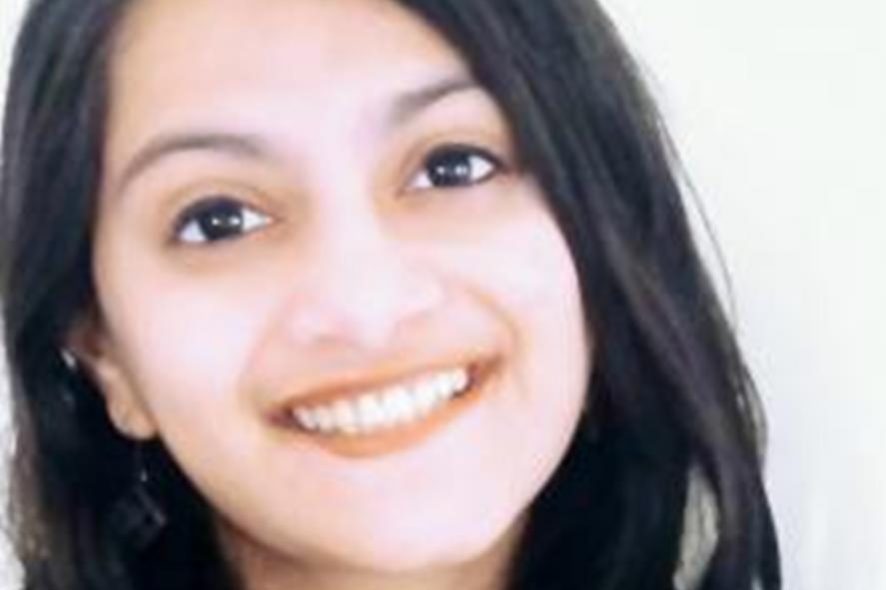Ms. Ira-Chadha Sridhar from the Class of 2018 (NUJS) has recently received the Cambridge International Scholarship for her Ph.D in Jurisprudence. She has completed her LLM at the University of Cambridge and was ranked second in her programme, along with receiving the George Long prize. She is currently teaching at Jindal Global Law School. She has been interviewed by EBC/SCC Online Student Ambassador Raksha Raina.
1.Hi Ira! Firstly, congratulations on your achievement and thank you for agreeing to share your experience with us! Can you tell our readers about yourself?
Thank you so much! I am a lawyer, with an interest and training in legal and political philosophy. I’m currently teaching at O.P. Jindal University.
2. Can you tell us about your time at NUJS? How did you manage your time?
I tried to keep myself as busy as I could during law school (in retrospect, perhaps a little too much). I participated in debating, mooting and wrote academic articles on areas that I thought were interesting and important. All such co-curricular activities are flawed in their own ways, and it’s important to know why you’re doing them and not let them define who you are in any significant way. These co-curricular explorations, coupled with internships with lawyers, really helped me arrive at a sense of clarity on what I wanted to work on.
3. How and when did you decide to pursue higher studies? What was your motivation behind the same?
I think it was sometime during my third year at NUJS. I began reading work in jurisprudence, even outside of our course readings, and found myself fascinated by the questions that the subject posed. I realised that one of my primary motivations to do law was to use law as an “instrument” towards social transformation. Jurisprudence helped me question law’s role in creating change. Most importantly, it allowed me to look at law critically. I decided then that I wanted to contribute to our understandings of what law is and what its relationship should be with ideals of justice.
4. Can you share some important aspects that played a major role while you filled your LLM applications?
The LLM application time is a stressful time for anyone who applies. An LLM balances an interest in law with a focus on academic rigour. I think publications, academic performance and one’s research interests are the most important aspects of an LLM application. Other than these, what I would suggest is thinking clearly about why an LLM is important to you. This really helps in writing a structured and coherent statement of purpose.
One tip I would give is to limit the number of schools you choose to apply to. The more schools you apply to, the more expensive, stressful and time-consuming your application year will be. It is better to apply to schools that you would surely want to attend if given a chance.
5. You were ranked second in the LLM programme at the University of Cambridge. How different is the academic system there as compared to India?
I found the system at Cambridge to be quite different from what I was used to. First, the amount of time students spend in lectures is comparatively less at Cambridge. This is because the university adopts a lecture, tutorial and reading-based pedagogy. We had fewer lectures, and a lot of focussed time to do readings and then discuss them in smaller groups at seminars. I really benefited from this model of teaching. I got the time to read a lot of texts, in the original, because of the amount of time I had. I’m not sure when else I’d have the time to read that much in a focussed manner.Second, the examination and grading pattern is different from the Indian undergraduate system. Your grade at Cambridge comes down to an examination at the end of the LLM year (and a thesis if you choose to write one). This is daunting. But, I think reading regularly, immersing yourself in work and making a good group of friends away from home, should get you through the LLM with a very good grade and an experience to really treasure for a lifetime.
6. We are delighted to hear about your Cambridge International Scholarship for the PhD.Can you tell us about the same?
The Cambridge International Scholarship is a full scholarship given to PhD students across departments at Cambridge. You do not have to make a separate application for it. You merely have to select that you’d like to be considered for funding by the Cambridge Trust in your University application form.For the PhD application, it is important to know very clearly what your area of interest is. I had to write a 3000-word research proposal for my application, along with submitting reference letters, transcripts, a CV and the application form.
7. Were there any major roadblocks that you faced? How did you overcome them?
One of the hardest things for me was to believe that my work will matter. Teaching and writing are slow in their pace, and it’s very easy to convince oneself that no one really reads the work we’re writing. Considering this, it is especially challenging that scholarships often require that candidates show the impact of their work in a readily quantifiable manner. Thiswas a little hard for me to do. I’m not quite sure how I overcame that (and whether I did at all), but I think it helps to see social transformation of any sort as a chain – one where academics, activists, lawyers and other stakeholders all play a part in some way or the other. Doing one’s own work with conviction is tough, but I’d like to think I’m getting there.
8. Finally, would you like to leave a word of advice for our readers?
If possible, spend some time thinking about what it is you really want to do. That helps – and of course, calms the nerves!



